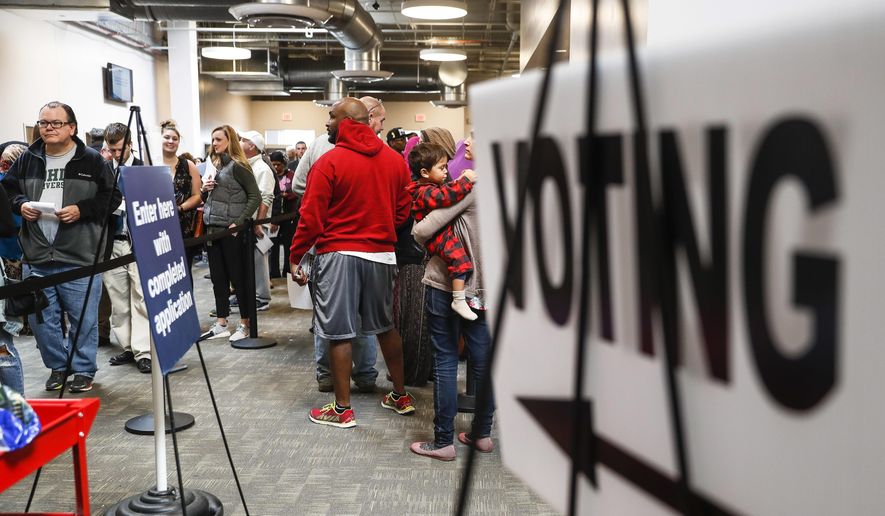The Supreme Court agreed to hear a case involving whether Ohio’s rules for cleaning up its voter rolls are too draconian, the justices announced Tuesday.
At a time when voter integrity is increasingly in the spotlight, the case will put the justices front and center in a debate about how far states can go to try to make sure their rolls aren’t littered with the names of dead voters or people who have moved out of the jurisdiction.
Voting-rights advocates say culling the lists ends up stripping out legal but infrequent voters who have every right to cast ballots.
Ohio had been prodding people who were infrequent voters and those who, according to the Postal Service, had moved out of the state.
The state sends out notices if someone doesn’t vote during a two-year period. If they then don’t vote over the next four years and don’t respond to the notices, they can be removed under state law.
An appeals court ruled Ohio’s process is too strict. The court also ruled the notification Ohio sends out to those it wants to remove from its books isn’t compliant with federal law.
In asking the Supreme Court to take the case, Ohio Attorney General Michael DeWine said states are caught between some voter integrity groups who are suing to demand better cleanup of voter rolls, and voting-rights groups that say cleaning up is erasing valid people from the rolls.
“In short, suits brought against States (including a suit by the United States) have required what the Sixth Circuit (and the United States) said below was prohibited. The Court should not leave the States with this diametrically conflicting guidance,” Mr. DeWine said in his petition asking the justices to hear the case.
• Stephen Dinan can be reached at sdinan@washingtontimes.com.




Please read our comment policy before commenting.